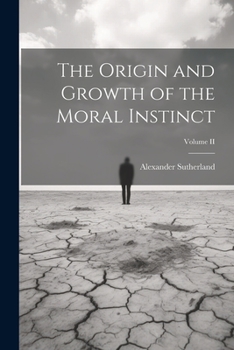The Origin and Growth of the Moral Instinct; Volume II
Select Format
Select Condition 
Book Overview
A treatise on the evolution of moral behavior, written by Scottish philosopher Alexander Sutherland. The book draws on ideas from both biology and social theory to argue that morality is innate to human beings and has developed over millennia as a means of promoting cooperative behavior. Despite being written in the late 19th century, many of its insights and arguments remain relevant to contemporary discussions of morality and human nature.
This work has been selected by scholars as being culturally important, and is part of the knowledge base of civilization as we know it.
This work is in the "public domain in the United States of America, and possibly other nations. Within the United States, you may freely copy and distribute this work, as no entity (individual or corporate) has a copyright on the body of the work.
Scholars believe, and we concur, that this work is important enough to be preserved, reproduced, and made generally available to the public. We appreciate your support of the preservation process, and thank you for being an important part of keeping this knowledge alive and relevant.
Related Subjects
History Literary Literary Criticism & Collections Literature Literature & Fiction Philosophy




